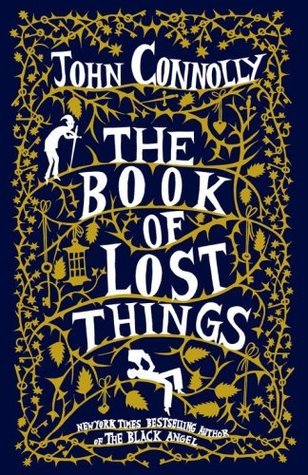TL;DR
In 'The Book of Lost Things,' John Connolly tells the story of twelve-year-old David, who escapes into a fantastical world filled with monsters and heroes after the death of his mother, exploring themes of loss, imagination, and the power of stories.
What is The Book of Lost Things about
'The Book of Lost Things' is a coming-of-age novel that intertwines reality with fantasy as twelve-year-old David navigates the emotional turmoil following his mother's death. Isolated in his attic, David finds solace in his books, which begin to whisper to him. When he is thrust into a mystical realm called Elsewhere, he confronts various heroes and monsters, facing the embodiment of his fears and desires. This journey serves not only as an escape but also as a means for David to process his grief and the disintegration of his family, ultimately leading him back home with newfound wisdom about life and the importance of storytelling.
The Book of Lost Things 7 Key Takeaways
David's Mourning and Imagination
David, mourning his mother's death, retreats into his imagination, where he finds comfort among the stories on his bookshelf.
Entering Elsewhere
David is transported to Elsewhere, a magical land that reflects his emotional struggles, filled with both fantastical creatures and sinister threats.
The Encounter with the Faded King
In Elsewhere, David learns about the Faded King, who holds secrets in 'The Book of Lost Things,' representing the complexities of facing one's fears.
The Trials of Heroes and Monsters
As David interacts with various characters, he learns critical lessons about courage, sacrifice, and the importance of making choices for the greater good.
Confrontation and Growth
David's journey culminates in a confrontation with the evil forces in Elsewhere, leading to personal growth and a deeper understanding of loss.
Return to Reality
Ultimately, David returns home, forever changed by his experiences, illustrating the profound impact of his imaginary journey on his real-life challenges.
Acceptance of Loss
In the end, David learns to accept his mother's death and the reality of growing up, marking his transition from childhood to adulthood.
Top The Book of Lost Things Quotes
- 'Stories are the only way we can understand the world around us.'
- 'In the end, we must face the darkness that lies within us if we are to find the light.'
- 'Each of us has only one life to live, and one life to give.'
Who should read The Book of Lost Things?
This book is ideal for young adults and readers who appreciate imaginative storytelling that tackles profound themes such as loss, growth, and the power of literature. It offers both a riveting adventure and a thoughtful exploration of emotional resilience.
The Book of Lost Things Best Reviews
- 'Connolly masterfully intertwines the real and the fantastical, creating a poignant narrative that resonates with readers of all ages.' - BookPage
- 'A dark, enchanting tale that captures the essence of childhood grief while celebrating the power of stories.' - Publishers Weekly
- 'A beautifully written coming-of-age story that explores the complexities of loss and imagination.' - Kirkus Reviews
People also liked these summaries
The Book of Lost Things FAQs
What age group is 'The Book of Lost Things' suitable for?
'The Book of Lost Things' is primarily aimed at young adults but is also suitable for older readers who enjoy fantasy and coming-of-age stories.
Is 'The Book of Lost Things' part of a series?
Yes, 'The Book of Lost Things' is followed by a sequel titled 'The Land of Lost Things,' but the first book can be read independently.
What are the central themes of the book?
The central themes include grief, the transition from childhood to adulthood, the power of imagination, and the importance of confronting one's fears.
